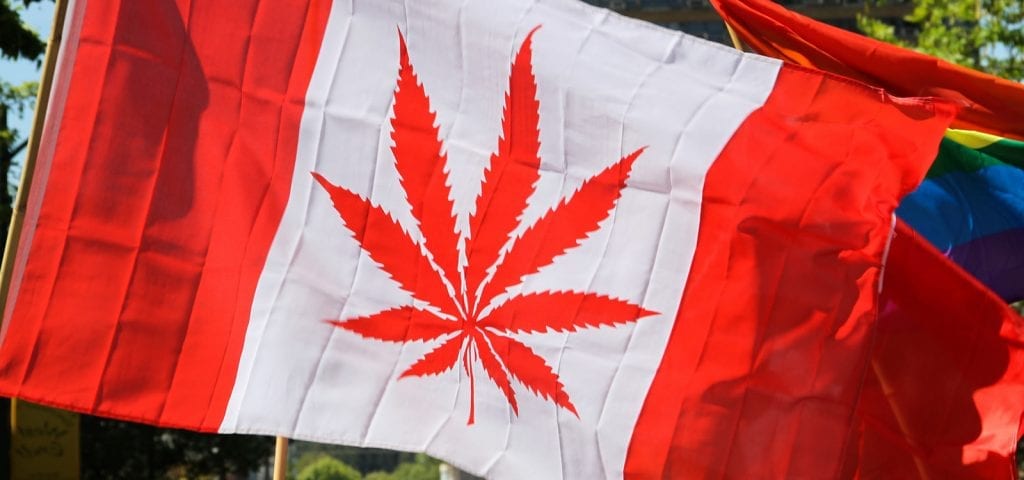Later this month Canadian officials are expected to unveil the regulations under which the nation’s legal adult-use cannabis industry will operate; but so far consumers, operators, and other stakeholders have scant details about what the regime will look like.
Federal regulations to grant local control
Liberal MP Bill Blair, the parliamentary secretary to the Minister of Justice, indicated on Mar. 1 that under the federal rules provinces would have control over distribution and sales, and adults 18-and-older would be able to legally purchase cannabis from licensed retailers. Provinces will likely be able to raise the age to purchase cannabis as well – much like the nation’s alcohol policies. In Alberta, Manitoba, and Québec the legal drinking age is 18, while it is 19 in the rest of the country.
Amy Margolis, a shareholder and cannabis law specialist at the U.S.-based Greenspoon Marder Law firm, has already met with some Canadian operators “who are working closely on legalization” in order to get an idea of what Canadian legalization might look like.
“We certainly are watching what is happening in Canada very closely… everybody is waiting – even here in the U.S. – with bated breath to see what the Canadian government is going to come up with,” she said, adding that last month’s announcement came just days after law enforcement carried out Operation Gator, raiding dispensaries in Vancouver, Toronto, and Hamilton.
Potential for ‘craft cannabis’ licenses
In an interview with Ganjapreneur, Margolis said the federal government would likely maintain control over cultivation – for which only 31 licenses have been issued under the nation’s almost 16-year-old medical cannabis regime – indicating that there are discussions happening about allowing “craft cannabis” licenses. Such licenses would allow smaller growers, some of which are already operating without a license, to grow and distribute “only in the jurisdictions where they are licensed.”
“If they don’t create something like that I think they’re going to have real issues with a gray market,” Margolis said. “But if they do manage to build that craft cannabis license then you will have the best of all worlds – larger licensees that provide broader product and these people who have been producing for a long time who are able to access the market.”
The sweeping reforms should also help stem what has become a prominent issue in Canada’s medical cannabis market – pesticide contamination. Last July, it was discovered that the federal government was discouraging laboratories from testing cannabis products from non-licensed producers. Five months later, Mettrum Ltd. issued a voluntary recall after its products tested positive for banned pesticides myclobutanil and pyrethrin; however, both the company and Health Canada came under fire for not informing consumers en masse. Last month, Aurora Cannabis announced that they were implementing a testing program beyond Health Canada requirements. Three class-action lawsuits against Mettrum and Organigram, another licensed producer, over tainted products are pending.
Ramifications for the international industry
While it’s almost a given that federal legalization in Canada won’t compel their American counterparts to follow suit, Margolis suggests that the U.S. industry could be impacted if current operators and investors move their operations – and money – north of the border. “I think from a market perspective we’re going to see people seeking additional opportunity in Canada that could be fueling jobs here, could be fueling tax revenue here, could be moving us forward.”
“From a policy perspective, it doesn’t seem to me that the [U.S.] federal government cares very much about how progressive other countries are in terms of drug reform,” she said. “I cannot foresee Congress saying ‘Hey, Canada’s done this progressive thing and we should be catching up.’… We’re already far behind places like Israel that focus a ton of energy and attention on medical research.”
During a debate on the floor of Parliament, Canadian Prime Minister Justin Trudeau, whose Liberal government is leading the reforms, said the party’s focus on legalizing cannabis “is on protecting our kids and getting the money out of organized crime’s pockets.”
“We know that that happens when you legalize and control and bring in a proper regime,” he said.
Many reports indicate that cannabis will be legal for sale on July,1 – Canada Day – however Blair said he “had no authority to confirm that date.”
A formal announcement of the rules is expected on April 20.
